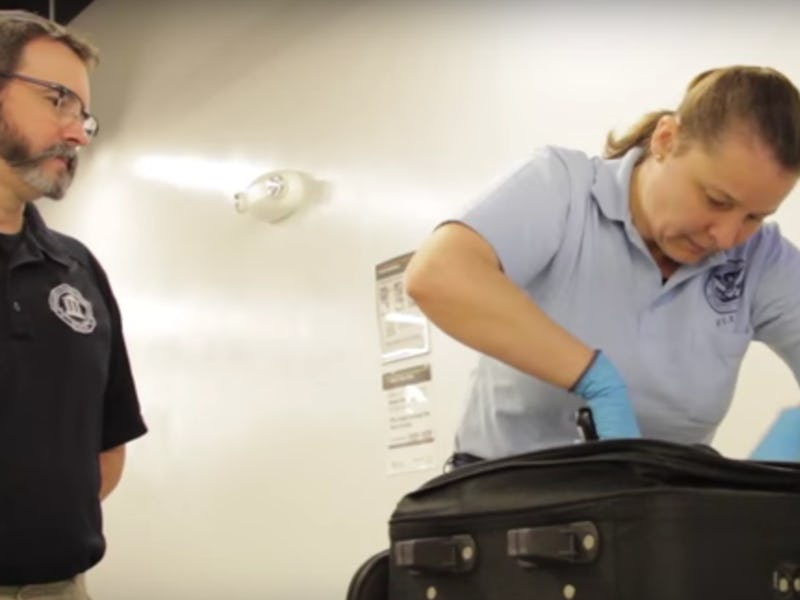TSA Shows Off Expanded Security Training After Bombing Multiple Tests
Training competent security screeners doesn't deserve praise.

The Transportation Security Administration is boasting about accepting nearly 5,000 new screeners to its academy safety training programs and has even posted a video to YouTube showing off the facilities. But based on TSA’s abysmal rate of failure to detect even a majority of threats in multiple independent tests, the video raises more questions about the lack of proper training than it works as a public relations device.
The video is introduced by TSA instructor Shawn Weeks Freeman, who has first-hand experience with terrorist attacks. While Freeman was serving as a flight attendant in Honalulu in 1982, her Pan Am 747 jumbo jet was bombed by a Palestinian terrorist group, killing one and injuring four. You can’t argue that Freeman doesn’t understand the stakes.
The footage goes on to supply some history for the training program — launched in 2012 to instruct supervisors on safety measures before expanding to admit 4,800 new screeners by 2018 — and show off the fully functional security checkpoint TSA uses to run drills. There’s even a bomb range so they can feel what an explosion is really like. If that happens in an airport it seems safe to predict something’s already gone very wrong, but every little bit helps. The TSA talking heads note how much this will improve airport security through a “cohesive” understanding across the ranks.
Not discussed, however, are the recent security failures that have called into question TSA’s prior training practices. In June, acting head of TSA Melvin Carraway was ousted after the nation’s busiest airports failed 95 percent of breach tests conducted in an internal investigation by the Department of Homeland Security. In that instance, screeners missed drugs, weapons, and even fake explosives.
You might think TSA would be sufficiently shamed by such an across the board failure, but you’d be wrong. A federal oversight group reporting to Congress in November found that TSA agents were still falling down on the job in a majority of 100 undercover audits performed at eight different airports.
The report noted:
Our testing was designed to test checkpoint operations in real world conditions. It was not designed to test specific, discrete segments of checkpoint operations, but rather the system as a whole. The failures included failures in the technology, failures in TSA procedures, and human error. We found layers of security simply missing. It would be misleading to minimize the rigor of our testing, or to imply that our testing was not an accurate reflection of the effectiveness of the totality of aviation security.
So yeah, maybe go ahead and expand that training TSA.